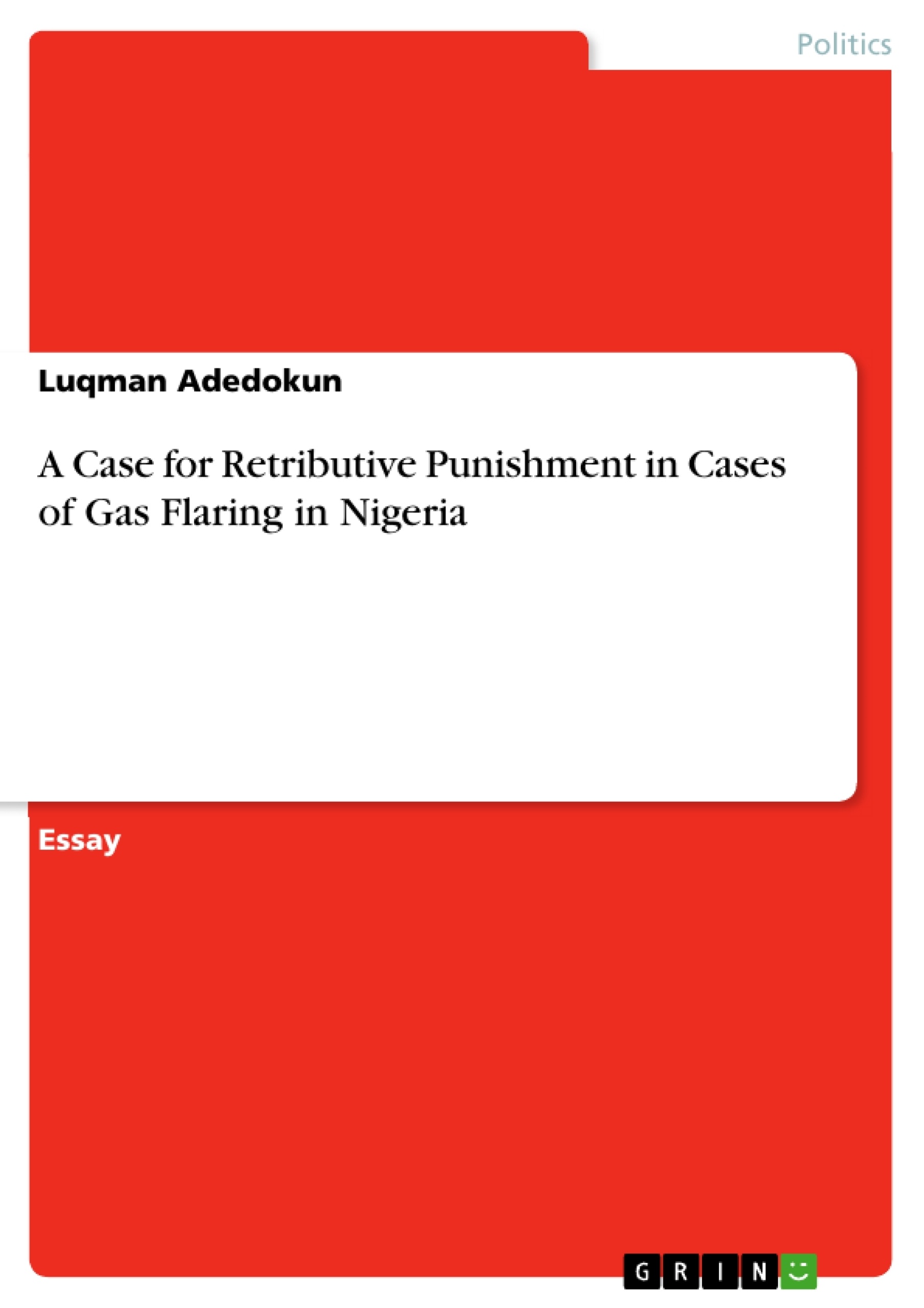Gas flaring is the burning of natural gas that is generated as by-product or consequence of crude oil production activities. Gas flaring is a major concern globally because of its impact on the society. It is therefore not a surprise that efforts are being made to combat gas flaring all over the world and Nigeria is not excluded from this drive. In Nigeria, policies have been formulated and laws and regulations passed to ensure that gas flaring comes to an end.
Similar to what obtains in other international jurisdictions, the characteristic feature of the law is to make provisions prohibiting gas flaring and enacting penal provisions to punish oil producing companies that are guilty of gas flaring. However, while some jurisdictions have made significant progress in reducing gas flaring, Nigeria has only leapfrogged in the same direction for decades. Typically, accusing finger is being pointed to slack penal regime that is not strong enough to deter oil companies from flaring associated gas. The aim of this paper is to review the current regulatory regime especially in relation to the penal provisions and make a case for the need to have more punitive penal provisions in our law.
In addressing the issue identified above, this paper attempts to review the existing regulatory regime, examine how much progress Nigeria has made at nipping the scourge of gas flaring in the bud over the years and then conclude on the need to inject more punitive provisions in our law.
Inhaltsverzeichnis (Table of Contents)
- Chapter 1 – Introduction
- Meaning of Gas Flaring
- Gas Flaring in Nigeria
- Historical Background
- Current Developments in Gas Flaring in Nigeria
- Attempts at stopping gas flaring in Nigeria
- Effects of gas flaring in Nigeria
- Challenges to Gas Utilisation in Nigeria
- Chapter 2-The Regulatory Regime for Gas Flaring in Nigeria
- Historical Trends in Gas Flaring Regulations
- Analysis of the Current Regulatory Regime
- The Associated Gas Re-Injection Act, 1979.
- Associated Gas Framework Arrangements
- Other Project Specific Fiscal Incentives
- Philosophical Underpinnings of the Current Regulatory Regime.
- Shortcomings of the Present Regulatory Regime........
- Chapter 3 - A Case for Retributive Punishment.
- Meaning of Retributive Justice
- Justification for Adopting Retributive Punishment in Gas Flaring Regulation
Zielsetzung und Themenschwerpunkte (Objectives and Key Themes)
This paper examines the current regulatory regime for gas flaring in Nigeria, particularly focusing on the penal provisions, and argues for the need for more punitive measures to deter oil companies from engaging in this practice.
- The historical development of gas flaring in Nigeria and its environmental and economic impact.
- A review of the regulatory framework for gas flaring in Nigeria, including the Associated Gas Re-Injection Act of 1979 and other relevant legislation.
- The shortcomings of the current regulatory regime in deterring gas flaring.
- A case for the adoption of retributive punishment in the regulation of gas flaring.
- The potential for a more effective regulatory framework to reduce gas flaring in Nigeria.
Zusammenfassung der Kapitel (Chapter Summaries)
- Chapter 1: This chapter provides an introduction to the concept of gas flaring, focusing on its significance in the context of crude oil production. It examines the historical background of gas flaring in Nigeria, the current state of gas flaring practices, and the environmental, economic, and health impacts of gas flaring. The chapter also explores the challenges associated with gas utilization and recycling in Nigeria.
- Chapter 2: This chapter analyzes the regulatory regime for gas flaring in Nigeria, examining its historical trends, key legislation, and philosophical underpinnings. It also explores the shortcomings of the current regulatory regime in effectively addressing the issue of gas flaring.
- Chapter 3: This chapter focuses on the concept of retributive justice and argues for its adoption as a key element in gas flaring regulation. It examines the justifications for employing retributive punishment as a means of deterring oil companies from engaging in gas flaring.
Schlüsselwörter (Keywords)
This paper focuses on the following key concepts: gas flaring, regulatory regime, retributive punishment, Nigeria, environmental law, sustainable development, oil and gas industry, associated gas, environmental impact, economic waste, health hazards, climate change, Niger Delta.
Frequently Asked Questions
What is gas flaring and why is it a concern in Nigeria?
Gas flaring is the burning of natural gas produced during crude oil extraction. It is a major environmental, economic, and health concern in Nigeria.
What is the main argument of this paper?
The paper argues for the adoption of more punitive, retributive punishment to effectively deter oil companies from flaring gas.
Why has the current regulatory regime in Nigeria failed?
The author points to a slack penal regime that is not strong enough to discourage companies from flaring associated gas.
What is the "Associated Gas Re-Injection Act of 1979"?
It is a key piece of Nigerian legislation intended to prohibit gas flaring and mandate the re-injection of gas into the ground.
What does "retributive justice" mean in this context?
It refers to a system of punishment where the penalty for gas flaring is proportionate to the environmental and social damage caused.
What are the challenges to gas utilization in Nigeria?
The paper explores various hurdles, including infrastructure deficits and the lack of strong fiscal incentives for gas recycling.
- Citation du texte
- Luqman Adedokun (Auteur), 2015, A Case for Retributive Punishment in Cases of Gas Flaring in Nigeria, Munich, GRIN Verlag, https://www.grin.com/document/356539



